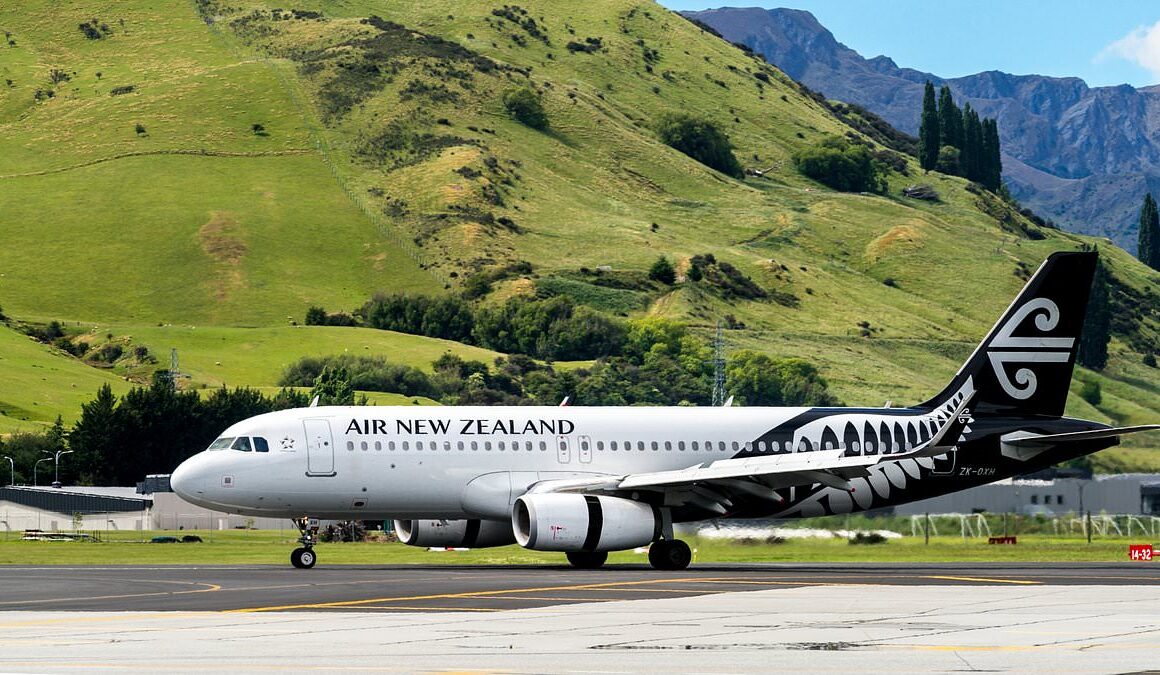Air New Zealand has become the first major airline to dump a 2030 emissions reduction target.
The Kiwi carrier had originally pledged to reduce its carbon intensity 28.9 per cent by the end of the decade, compared with 2019 levels, in a methodology validated by the Science-based Targets initiative (SBTi), a UN-backed corporate climate action group.
But it blamed high green fuel prices and a lack of lower emissions aircraft for the decision to abandon the goal.
‘Many of the levers needed to meet the target, including the availability of new aircraft, the affordability and availability of alternative jet fuels, and global and domestic regulatory and policy support, are outside the airline’s direct control and remain challenging,’ the carrier said in a statement to the ASX.
Air New Zealand CEO Greg Foran said it had become apparent in recent weeks that new aircraft delivery delays risked that goal and the airline would withdraw from the SBTi network immediately.
‘It is possible the airline may need to retain its existing fleet for longer than planned due to global manufacturing and supply chain issues that could potentially slow the introduction of newer, more fuel efficient aircraft in to the fleet,’ Mr Foran said.
‘As such and given so many levers needed to meet the target are outside of our control, the decision has been made to retract the 2030 target and withdraw from the Science-based Targets initiative network immediately.’
Australian airlines remain committed to the 2030 target.

Air New Zealand has become the first major airline to dump a 2030 emissions reduction target

The Kiwi carrier had originally pledged to reduce its carbon intensity 28.9 per cent by the end of the decade, compared with 2019 levels
Air New Zealand said it was still committed to an industry-wide target of net zero emissions by 2050.
Aviation is deemed responsible for about 2 per cent of the world’s emissions but is considered one of the hardest sectors to decarbonise as fuel for flights cannot be easily replaced with other kinds of power.
Airlines are banking on plant-based Sustainable Aviation Fuels (SAF) and more efficient aircraft to reduce emissions in the near-term.
However, SAF production is expensive and plane manufacturers are struggling to deliver new-generation aircraft on time.








